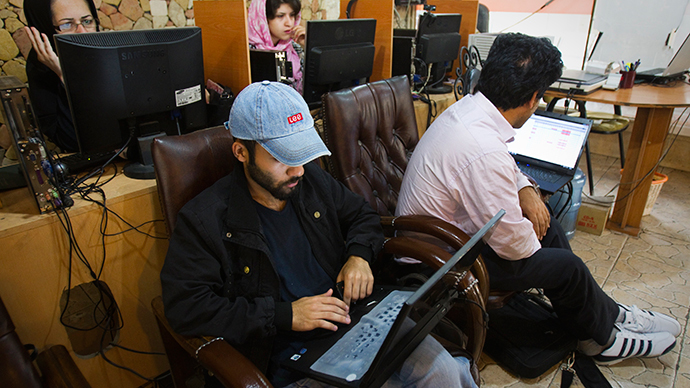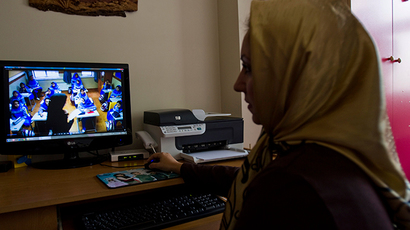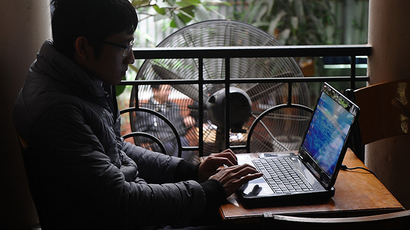Tailored censorship? Iran unveils ‘smart’ web filters

Iran is rolling out new “individual filters” that will let citizens receive access to different parts of the internet, depending on government clearance, and will allow censors to weed out specific website pages – not entire domains, as they currently do.
READ MORE Global internet freedoms in decline – monitoring group
“Implementing the smart filtering plan, we are trying to block the criminal and unethical contents of internet sites, while the public will be capable of using the general contents of those sites,” communications minister Mahmoud Vaezi told the official IRNA news agency.
Vaezi said that only 10 to 15 percent of the contents of some of the social networks would be affected as a result.
“Presently, the smart filtering plan is implemented only on one social network in its pilot study phase and this process will continue gradually till implementing the plan on all networks,” the Iranian official continued, saying the process will take six months to complete.
It has been understood that he was referring to Instagram, as this week filters reportedly began cleansing it of “immoral images.” Vaezi earlier claimed that it had been “under the most pressure,” due to users posting content that Iranian censors deemed unacceptable.
The government currently uses blanket censorship to block access to about a half of the world’s top 500 sites, according to a study published by Alex Halderman, a computer science professor at the University of Michigan, conducted with the help of anonymous Iranian insiders. These include Twitter and YouTube, while others – like Facebook – are intermittently blocked during what are deemed to be politically sensitive periods.

Smart filtering is part of a bigger reform to adopt a more granular approach to internet access in the country.
Last week, the government announced that filtering “will be done at the individual level of access and according to the situation of each user, which would involve the user’s profession, age and needs,” Mehr news agency reported.
Vaezi also recently said that Iran is developing a system that will require each citizen to log in their name every single time they go online, so that censors will be able to monitor every website they visit in real time.
Currently, sophisticated internet surfers can use proxies and anonymizing software to bypass government controls and monitoring.
Halderman’s study says that almost all traffic into the country filters through a single “processing facility,” where undesirable content is blocked.
Internet speeds are also artificially restricted to 128 kbps for ordinary users – about twice as fast as 1990s dial-up modems. Anyone requiring faster access – privileged officials or scientists – has to receive special permission from the government.
President Hassan Rouhani has spoken in favor of loosening web controls and integrating the internet into Iranian society since his election last year. He insisted that the country “cannot close the gates of the world to our younger generation."
READ MORE: Be more Internet-tolerant, Iran’s Rouhani urges clerics














